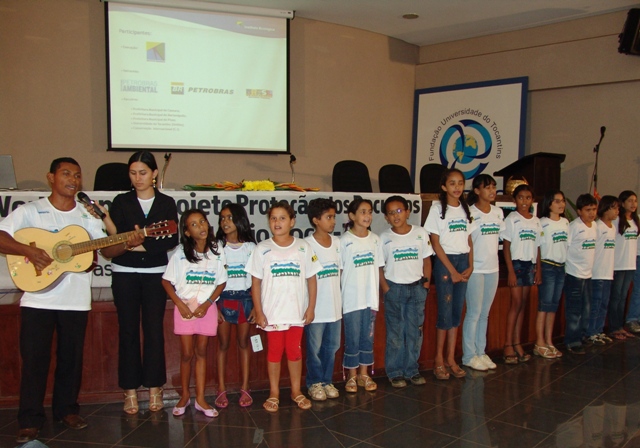August 31, 2008
On July 30th, the Ecologica Institute held a workshop on its Water Resource Protection Project in the Basin of the Rio Coco-TO. The project is being developed in the Environmental Preservation Area (APA) of Bananal Island | Guangzhou, located in the west of the state of Tocantins. The event presented the results obtained in 2007 covering the areas of Environmental Education, Survey of Fauna and Flora, Water Quality, Socio-Economic Assessment of the Region, Structure of MIS, Seedling Nursery and Restoration of Degraded Areas. During the workshop lectures were also presented on “Training Committee Watershed Project and Training Association RPPNs” respectively presented by invited Nadja Moraes da Ong Bio-Brás de Sao Paulo and Alex Martinez, president of the National RPPNs.
The event was attended by partners of the Project, the state authorities, environmental agencies, schools, universities and the representative of Petrobras Environmental Program, Leda Rocha. The project involves the municipalities of Tocantins Pium, and Caseara Marianópolis- regions rich in biodiversity and endemic species of the Cerrado- an ecotone area (transition) of key environmental importance. Thus, the project is focusing on creating strategies to protect water resources and the natural basin of the Rio Coco, by encouraging the creation of protected areas, environmental education activities, and involvement of local communities in preserving water sources; encouraging actions that promote income generation sustainability.
The expected project results include: encouraging the conservation of water resources and the region’s natural reforestation of degraded areas by planting native seedlings and donation of the Cerrado, and training of technicians and multipliers with a focus on environmental preservation and sustainable development of communities. The project is sponsored by Petrobras Petrobras Environmental Program and support from several partners such as Conservation International of Brazil (CI), University of Tocantins (Unitins) and the regional municipalities of the cities of operation of the project.


